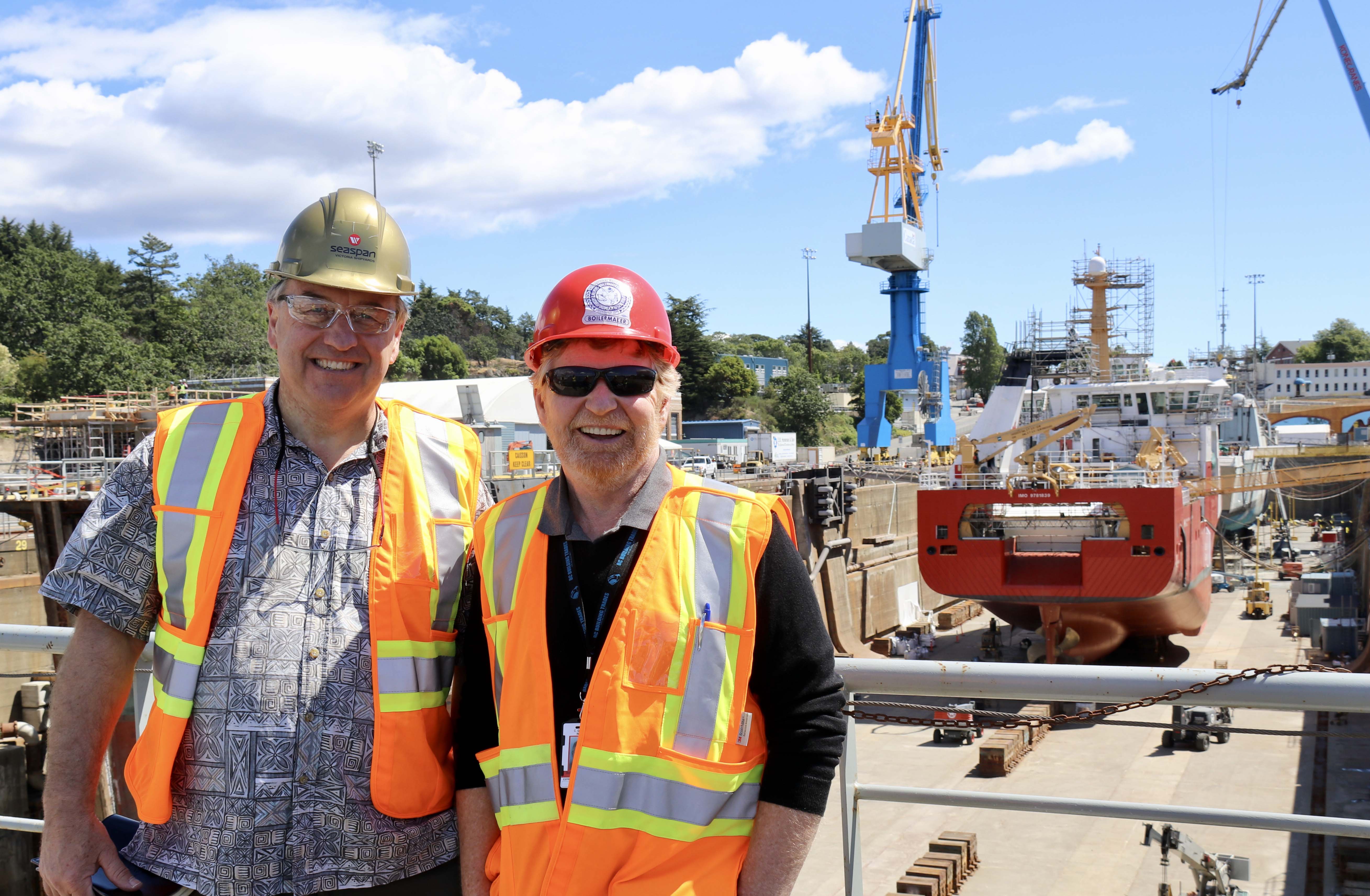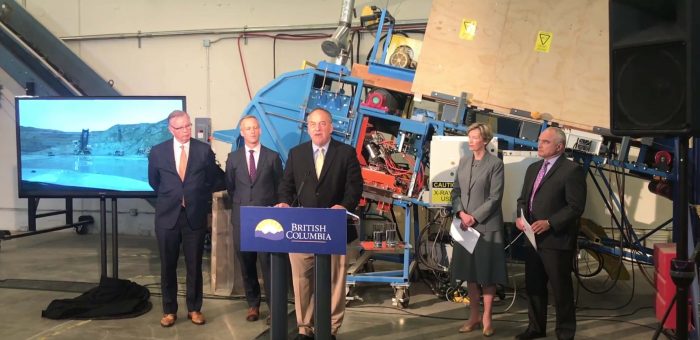B.C. Greens welcome ALR report and urge government to act on house size restrictions
The BC Government today released the interim report of the B.C. Minister of Agriculture’s Advisory Committee for Revitalizing the Agricultural Land Reserve and the Agricultural Land Commission. As noted in the accompanying press release, the committee identified 13 recommendations for legislative and regulatory change, and four recommendations for action to protect the ALR. It also identified 14 key issues that are still under consideration for its final report.
Our caucus issued the press release reproduced below welcoming the report and urging the government to act quickly on the recommendations to limit house size on ALR land and to return the entire ALR to a single zone.
Media release
B.C. Greens welcome ALR report, urge government to act on house size restrictions and zone change
For immediate release
August 8, 2018
VICTORIA, B.C. – The B.C. Green caucus welcomed the Ministry of Agriculture Advisory Committee’s agricultural land reserve (ALR) revitalization report released today. The Caucus emphasized that the government should act quickly to adopt the recommendations to limit house size on ALR land and to return the entire ALR to a single zone.
“The ALR is crucial to supporting B.C. agriculture, farmers and our local food security,” said Adam Olsen, B.C. Greens spokesperson for agriculture.
“It has been increasingly under threat due to the preponderance of mega mansions, stemming from speculation in our real estate market. This is driving up prices at a time when the industry is facing a demographic crisis and young farmers are struggling to afford to buy land. I am pleased to that the committee recommends that the province limit house size on the ALR and I urge the government to swiftly adopt this recommendation.”
B.C. Greens leader Andrew Weaver added that the government should also adopt the committee’s recommendation to return the ALR to a unified zone.
“The previous B.C. Liberal introduced the zone changes in 2014, which opened up precious farmland to oil and gas exploration, among other non-agricultural industrial activity,” Weaver said.
“That was a short-sighted decision made at a time when we should have instead been investing in the sustainable industries of the future. As the world shifts to the low carbon economy, it is essential that we take every opportunity to support economic development, especially in rural communities, in sectors that will sustain us in the long-term. I thank the committee, especially Chair Vicki Huntington, for their excellent work on this report. We are reviewing the other recommendations in detail and look forward to working with government to advance legislation that will ensure a strong, revitalized ALR so that British Columbians can benefit from a thriving agricultural sector for generations to come.”
-30-
Media contact
Jillian Oliver, Press Secretary
+1 778-650-0597 | jillian.oliver@leg.bc.ca
Tribute to Dr. David Chuen-Yan Lai
On June 15, 2018 my UVic colleague Dr. David Chuen-Yan Lai passed away. A memorial gathering was held to celebrate his life on from 2 to 4pm on August 5th at the Chinese Cultural Centre on Pender Street in Vancouver. I had planned to offer a brief tribute to Dr. Lai but I was also participating in the Vancouver Pride Parade. Unfortunately, our position in the parade was such that it was impossible for me to make it there on time.
Below is the brief tribute I had hoped to deliver in celebration of Dr. Lai’s life.
Tribute
It is a great honor and privilege to be gathered here today with all of you to celebrate and remember Dr. David Chuen-Yan Lai.
Dr. Chuen-Yan Lai was an extraordinarily influential member of my community. He’s widely credited as leading the renewal of Canada’s oldest Chinatown in Victoria. His humble, yet articulate and insightful approach to scholarship was an inspiration to his students.
I knew Dr. Lai well as a colleague of his at the University of Victoria. His remarkable legacy of preserving the history and culture of Chinese Canadians was recognized through him being awarded the Order of Canada, the Gabrielle Léger Award of the Heritage Canada Foundation, the Heritage Award of the B.C. government and a Victoria Leadership Award.
From his fight to preserve Victoria’s Chinatown, to influencing countless lives through his days as a professor at the University of Victoria, Dr. Chuen-Yan Lai leaves behind him a legacy to follow, admire and never forget.
Thank you David for all that you did for UVic, The City of Victoria, The Chinese Community in British Columbia and all Canadians.
Your achievements and accomplishments will never be forgotten and we are grateful for your unselfish service for the betterment of our society.
New property transfer data requirements show it’s time to close bare trust loophole
Today the government announced that it was taking steps to collect data to ensure transparency of ownership of properties purchased through a corporation or a trust. As I note in the media release below, improving data collection and transparency is a good first step, but the province should proceed with applying property transfer tax to the transfer of beneficial ownership. Doing so would plug a loophole that lets corporations and wealthy individuals avoid paying BC’s property transfer tax.
It’s been almost five years since I began urging government to close this so-called bare trust loophole as was done in Ontario many years ago. Doing so is one of the most important steps government can take to crack down on speculative activity in the housing market.
Finally, and coincidentally, Great Britain announced similar measures today for offshore buyers. But in the UK case, stiff penalties and even jail sentences are being proposed if people “fail to register or attempt to file false information“.
Media Release
New property transfer data requirements show it’s time to close bare trust loophole: Weaver
For immediate release
July 25, 2018
VICTORIA, B.C. – Andrew Weaver, leader of the B.C. Green Party, says the government’s move to collect information on beneficial ownership of properties underscores the immediate need to close the bare trust loophole. Bare trusts allow for the transfer of beneficial ownership within trusts. Since no title change occurs, no property transfer tax (PTT) is paid.
“This data collection is a good first step, but the province should proceed with applying property transfer tax to the transfer of beneficial ownership,” said Weaver.
“Speculation is a major driver of the housing affordability crisis. The bare trust loophole incentivizes speculation. Preventing individuals and corporations from using it to avoid paying taxes is low-hanging fruit and should be dealt with immediately. Applying the PTT to beneficial ownership has been done in Ontario and is what is needed to close this loophole once and for all.”
Weaver has called for the closure of the bare trust loophole since 2015. The government first announced its intention to collect additional data on beneficial ownership in the February provincial budget. Today, it announced that it will begin the data collection on September 17, 2018.
-30-
Media contact
Jillian Oliver, Press Secretary
+1 778-650-0597 | jillian.oliver@leg.bc.ca
Community benefits agreements & the proposed BC Infrastructure Benefits Inc.
Earlier this week the BC government announced 2 public infrastructure projects that will be delivered under “Community Benefit Agreements” (CBAs), and the creation of a new Crown corporation, BC Infrastructure Benefits Inc., (BCIB) that will oversee the implementation of these agreements.
In response to media requests on this announcement we issued the following statement :
“Community benefit agreements are a great way to invest in our province’s future and a key tool that government can use to advance social and environmental goals. In particular, investing in training and apprenticeships for young people, First Nations and women will help set those British Columbians up for long-term success, which will have significant knock-on benefits for our province and its communities.
I look forward to seeing the details of the government’s overall framework. I will be looking to ensure that it is fair and effective from a policy perspective, rather than a political or ideological one. While our caucus’ approach to labour policy differs in some respects from the BC NDP’s, I believe there are significant opportunities for us to collaborate to modernize BC’s laws so that we can best set British Columbians up for success amidst major global economic shifts.
I look forward to seeing the details of this agreement and working with Minister Bains to meet our CASA commitment to find innovative ways to improve fairness for workers.“
In response to a number of questions, I wanted to expand on this statement.
Without a doubt, CBAs can be a good policy tool to accomplish important objectives for public construction projects, such as increased apprenticeships, increased participation for indigenous trades workers, women and other underrepresented groups, commitment to local hiring, and more certainty on wages on project timelines.
A strong building trades labour force is critical for our province’s future. To meet our climate targets and build a stronger, sustainable economy, we are going to need to make significant investments into our existing building stock, as well as building new infrastructure including public transportation. We also need to ensure our workforce develops, in particular by ensuring that there are enough apprenticeship opportunities to train new workers.
However, CBAs must be advanced as a policy tool to address the values I outlined above – not as a tool to pay back political favours or to advance ideology at the expense of good policy. We have made this perspective clear to the government, and will be applying this approach to reviewing how the government awards Community Benefit Agreements in the future.
We have also asked government to provide reasoning for why the two projects announced earlier this week had a unionization requirement for workers on these two sites.
It is our view that CBA should be applicable for both union and non-union trade shops and that we are focused on ensuring that whoever is competing for a contract is meeting the requirements laid out in the CBA. To be clear – CBAs can be good policy, providing a good tool for government to help drive the development of a strong building trades labour force, as long as we use them for policy not partisan reasons.
Announcing BC’s Emerging Economy Task Force
This past Tuesday, the BC Government officially launched the Emerging Economy Task Force. The BC Greens proposed the establishment of the Emerging Economy Task Force as a means of addressing how technology, innovation and global trends are changing business and society. This task force brings together key people who can identify the challenges we will face in the years ahead, and help us capitalize on the opportunities that arise.
The launch occurred at the offices of Minesense, a BC-based company that exemplifies innovation in the resource sector.
Below I provide the video and text of my remarks at the launch. I also attach the accompanying BC Green Caucus press release.
Video of Speech
Text of Speech
I’m delighted to join Minister Ralston and BCIT President Kathy Kinloch in announcing the launch of the Emerging Economy Task Force.
I can think of no better location that the offices of Minesense Technologies here in Vancouver for such an announcement.
Minesense’s real-time, sensor-based ore sorting technologies embody BC innovation at its finest and provide a perfect example of what’s needed for BC to emerge as a global leader in the 21st century economy.
The future of economic prosperity in BC lies in harnessing our innate potential for innovation and bringing new, more efficient technologies to bear in the resource sector.
BC will never compete in digging dirt out of the ground with jurisdictions that don’t internalize the same social and environmental externalities that we value.
We will excel through being smarter, more efficient, & cleaner.
This means that we not only export the dirt, but we also export the knowledge, technology and value-added products associated with resource extraction.
And that’s where companies like Minesense come in.
The BC Green Party originally proposed the establishment of an Emerging Economy Task Force as a key aspect of our 2017 election platform. It subsequently became an integral component of our confidence and supply agreement with the BC NDP.
We know that technology, innovation, and global trends are set to have significant impacts on our economy. While they present profound challenges they also provide incredible opportunities.
Take, for example, the increasing worldwide use of automated technology.
Automation could transform our workplaces and change the very nature of employment.
Studies estimate that half of Canadian jobs could be impacted by automation in the next decade alone.
In response to such changes, government needs to have a plan.
Many of the jobs that the next generation will be preparing for don’t even exist today.
And we are still on the cusp of witnessing the impacts that breakthrough technologies like 3d printing will have on our supply chains.
As the global economy changes, new opportunities are also created. But the advantages of these opportunities will flow to those who lead – not to those who follow.
The task force announced today will strategically help British Columbia as we embrace the new and emerging economy.
I’m delighted that the BC NDP Government recognized the importance of this initiative.
And I’m grateful to the remarkably talented individuals who’ve agreed to serve on the Emerging Economy Task Force. They bring a range of expertise and experience, from industry, business, and academia to the team.
They’ll play a critical role in helping us identify the challenges ahead, and advise on how to respond, and on how to capitalize on the opportunities that arise.
It’s truly an exciting time for innovation in British Columbia.
Thank you.
Media Release
Weaver welcomes launch of emerging economy task force
For immediate release
July 10, 2018
VICTORIA, B.C. – Today Andrew Weaver welcomed the launch of the Emerging Economy Task Force (EETF). The EETF was a key B.C. Green platform commitment and part of the confidence and supply agreement between the B.C. Green caucus and government.
“I am thrilled to join Minister Ralston to launch the Emerging Economy Task Force today,” said Andrew Weaver, Leader of the B.C. Green Party.
“We know that technology, innovation and global trends are having significant impacts on our economy. These changes present both huge challenges and enormous opportunities for B.C.”
The EETF will analyse trends occurring in the economy, including technological change and global trends, and propose policy options for government to ensure B.C.’s continued economic success amidst these changes.
“The members of the EETF bring a range of expertise and experience, from industry, business and academia. Their analysis and advice will help us build a competitive advantage as we navigate this new type of economy.
“This task force is an opportunity to challenge how government typically thinks. Too often, governments don’t plan much into the future beyond the next election cycle. The Emerging Economy Task Force well help ensure government has the information they need to make informed decisions so that B.C. can succeed in the years ahead.”
-30-
Media contact
Jillian Oliver, Press Secretary
+1 778-650-0597 | jillian.oliver@leg.bc.ca








